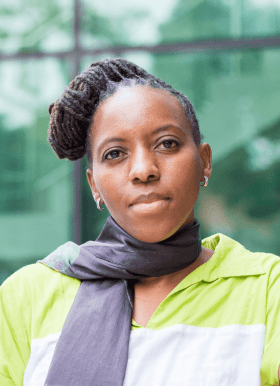
Nothando Ngwenya, PhD
HIGH IRI Fellow | Africa Health Research Institute
Nothando Ngwenya is a psychologist and faculty member at the Africa Health Research Institute (AHRI) in South Africa where she is based. Her background and training are in palliative and end of life care and now focuses on transferring those skills to HIV care by investigating treatment adherence in youth, impact of adversity and adverse childhood experiences on mental health outcomes and HIV as a trauma for adolescents. She is also involved in teaching at the University of KwaZulu-Natal (UKZN) and an honorary Associate Professor at the Institute for Global Health, University College London (UCL).
She has been involved in various clinical trials on treatment adherence for adolescents living with HIV, and leading teams in the impact evaluation of interventions using peer link strategies. Nothando’s research focuses on human behavior in adverse and complex social-ecological systems. Her work is strongly anchored in her interest in understanding how adversity and ill health shapes behaviors, and the implications of these interactions for resilience and mental wellbeing when living with a long-term condition. Resilience in this context is the capacity of an individual to deal with drastic change/trauma and continue to develop and thrive. One of Nothando’s main research questions is how a diagnosis of an incurable condition such as HIV and associated uncertainties influence individual behavior impacting on mental health decision making processes and self-management. Her current focus as part of her Wellcome Trust International Intermediate Fellowship is using the task shifting frame of training non-specialists to deliver a transdiagnostic psychological problem management intervention to young people living with HIV. She has an interest in how cultural conceptualizations of mental health may influence health seeking behaviors and the buffering role of social capital in dealing with trauma and adversity. Her research is informed by social-ecological systems research and cultural psychology. She hopes to use this training opportunity to generate evidence for contextual adaptation of interventions and optimizing implementation strategies.